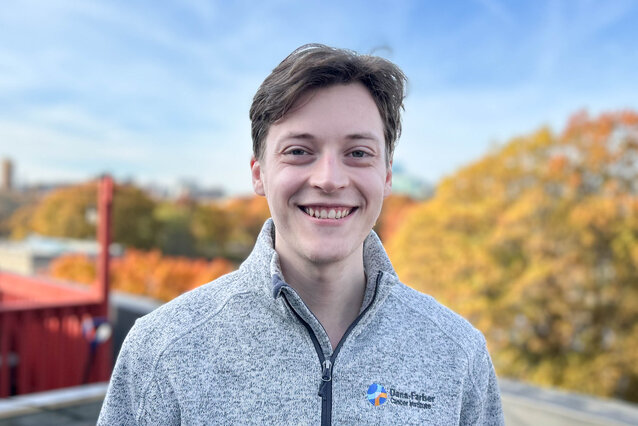Robert Kalis receives Vienna BioCenter PhD Award 2025
At the 2025 Vienna BioCenter PhD Symposium, exceptional young scientists were recognised for their doctoral achievements across diverse research fields. Among the awardees is Robert Kalis, a former PhD student in Johannes Zuber’s lab at the IMP, whose groundbreaking work on how cancer cells adapt to the harsh conditions within tumours earned him one of this year’s Vienna BioCenter PhD Awards.
At this year’s Vienna BioCenter PhD Symposium, held under the theme “Bringing it all back Home” and celebrating Vienna BioCenter alumni, Robert Kalis, former PhD student in the lab of Johannes Zuber at the IMP, was honoured with one of the Vienna BioCenter PhD Awards 2025. The annual awards distinguish outstanding doctoral theses defended within the Vienna BioCenter PhD Program and highlight research excellence across the campus.
In his PhD work, Robert Kalis studied how cancer cells adapt to the complex stresses of the tumour environment. Working jointly with Wilhelm Palm’s lab at the German Cancer Research Center (DKFZ), he helped discover how acidosis—a drop in pH caused by metabolic byproducts—acts as a master regulator of cancer metabolism. The team showed that acidosis triggers mitochondrial fusion, enabling cancer cells to shift from sugar-burning to a more efficient, oxygen-based mode of energy production, enhancing their resilience to multiple stresses. These findings reshape our understanding of tumour metabolism and allow researchers to search for therapies under more realistic conditions, exploring new ways to break this resilience.
This year’s Vienna BioCenter PhD Awards were presented to Irene Schwartz (Gijs Versteeg lab, Max Perutz Labs), Robert Kalis (Johannes Zuber lab, IMP), Víctor Sánchez de Medina Hernández (Yasin Dagdas lab, GMI), and Max Josef Kellner (Josef Penninger lab, IMBA).
About Robert Kalis
Robert Kalis studied medicine in Vienna, Leuven, and Heidelberg, completing his master’s thesis in Johannes Zuber’s lab at the IMP, where he continued as a PhD student within the Vienna BioCenter PhD Program. His work at the interface of functional cancer genetics and metabolism has been recognised with the 2025 Vienna BioCenter PhD Award. Robert recently moved to the United States, where he is a Research Fellow in Ben Ebert’s lab at the Dana-Farber Cancer Institute and Harvard Medical School.
Further reading
How cancer turns sour into power
